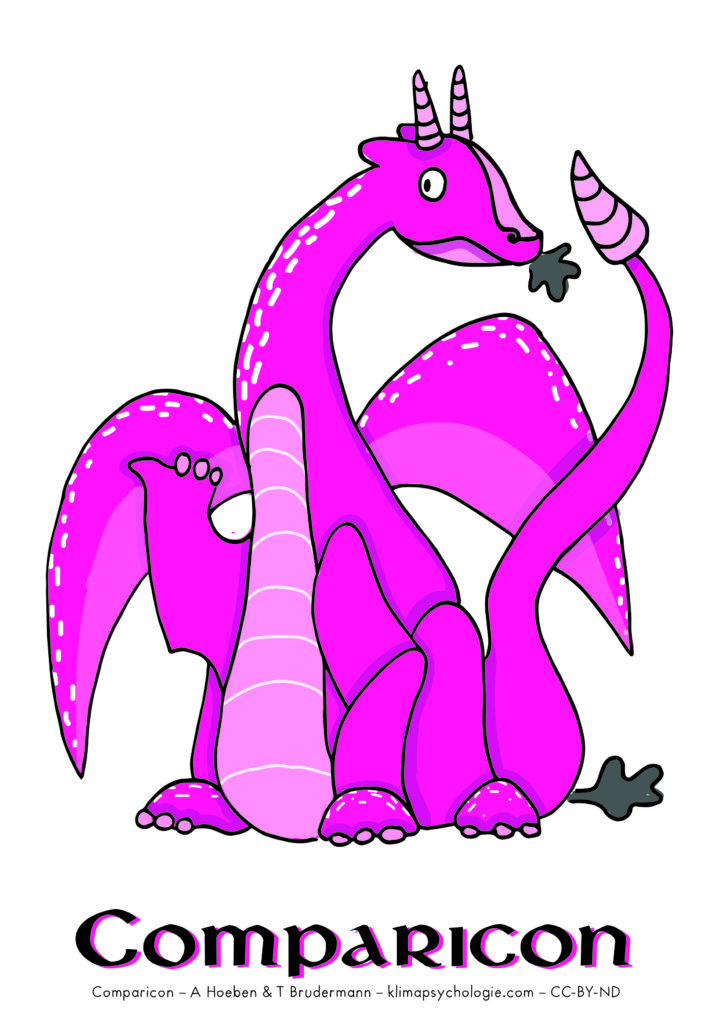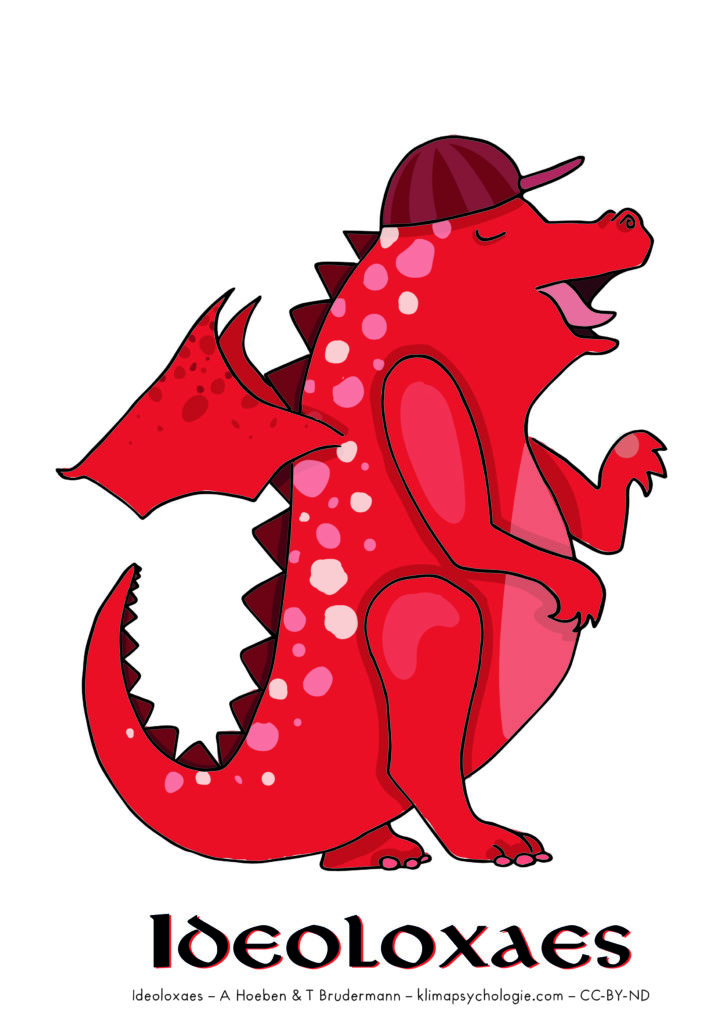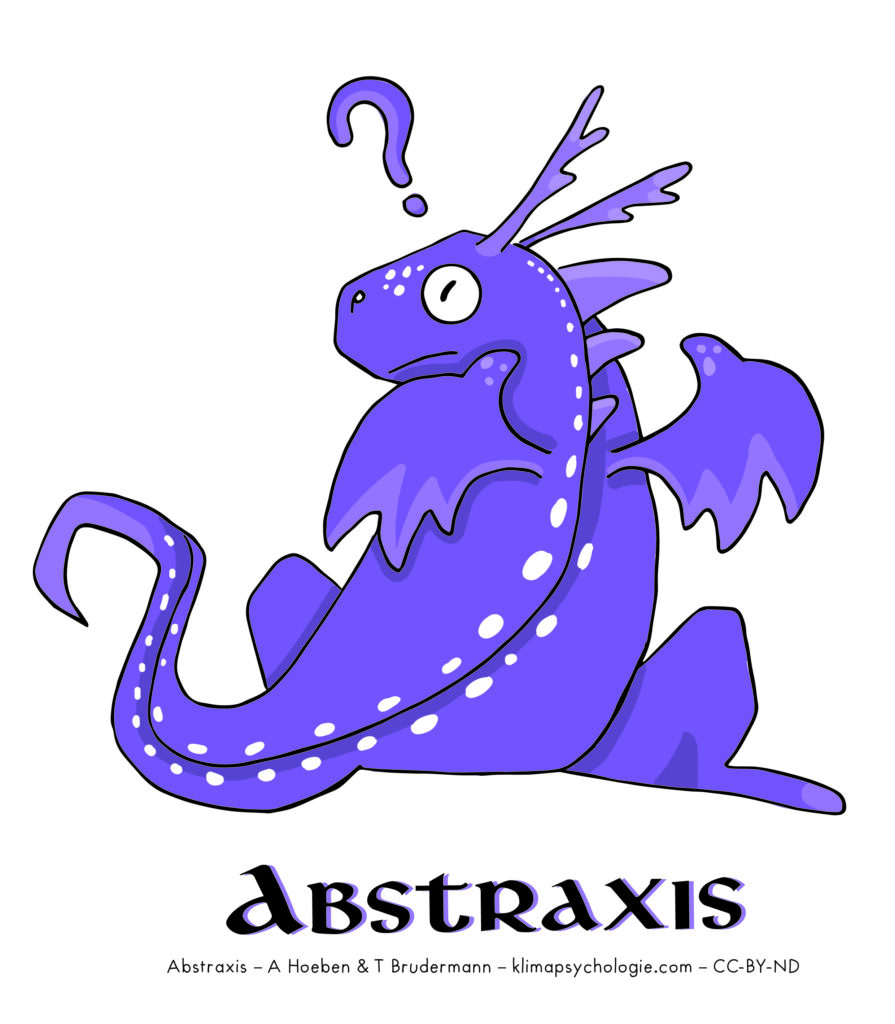Are the dragons winning?
Canadian psychologist Robert Gifford was the first one to categorize and explain the dragons of inaction: Inner dragons that prevent us from acting againts climate change. Using the talents of Annechien Hoeben we bring his and other dragons to life. We give them an appearance and a name. After all, we understand more easily what we see – and it is easier to fight something if it has a name and a face.
These dragons can be used in workshops or in presentations about the psychology of climate change.
The brief explanations will be hopefully completed soon; updates can also be found on my LinkedIn profile.






Abstraxis
Although a major threat, climate change is often perceived as something abstract. It has little relevance for most everyday lives of Jane & Jon Doe in rich countries at the moment. Even if extreme weather strikes, we do not experience climate change per se – we experience a manifestation of it.
The resulting psychological distance to the threat makes ambitious collective action difficult: Intuitively we believe that climate change affects mainly other regions, happens in the future or is a problem for people we do not know.
A major challenge is to talk about climate change in a more concrete and relatable way, that is at the same time activating, hopeful and not ignorant of the urgency of the situation. A thin line to walk – but a necessary one if we want to defeat the dragons.

Ideoloxaes
For decades, (mainly) parties with more conservative or national ideologies have downplayed or denied the existential threat that climate change (and other ecological crises) pose(s) to us. Consequentially, environmental action is often seen as something for the “lefties” or “green eco-hippies”.
At the same time, climate denial organizations with substantial funding from the fossil fuel industry adapt their messages well to the living realities of more conservative groups. In a nutshell: “Your fossil lifestyle that you like so much is fine as it is, don’t let these hysterical greens tell you otherwise.”
As the looming disaster does not care about ideology, the big question is: How do we overcome this divide?

Oecolaeres

Oecolaeres is an eco-dragon. He loves nature. He even recycles the knights he captures. But well, that is also where it stops. He loves setting everything on fire and burning fossil fuels to fullfil his needs, which emitts a lot of greenhouse gases. A deep reconsideration of all his practices did not yet occur to him.
Comparicon

Comparicon is a very social dragon. He properly observes, what others are doing. And he sees a lot of climate sins among others. So why would he care, if he can compare?
Norrisk

Stopping fossil fuels, changing our businesses and ways of life? That sounds risky. To risky for Norrisk, our risk-averse dragon.
Technofyre

Finally we have Technofyre. Technology will solve everything is his hope. As we know, this remains a hope. Better technology is one important part of the sustainability transformation. But there are challenges for which technological solutions are lacking. Technofyre prefers to ignore this unpleasant fact.